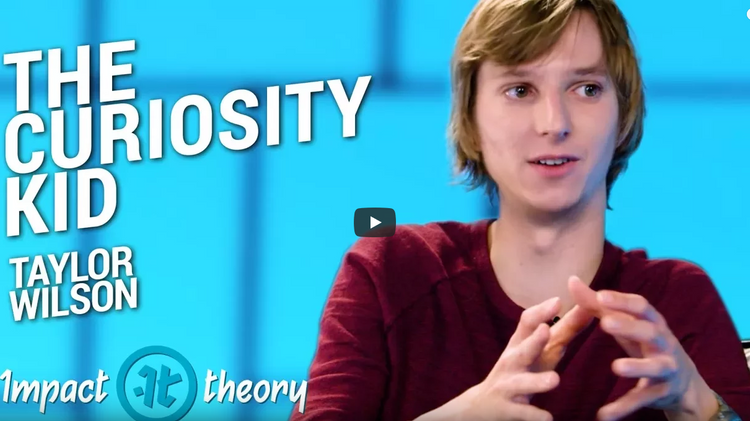Why Unstructured Learning is the Secret to a Lucrative Career

"Data Science" was coined back in 2008 by DJ Patil and Leff Hammerbacher. In 2012, D.J. Patil and Thomas Davenport called “data scientist” the sexiest job of the 21st century in an article they wrote for HBR
This new dream job combined the coding skills of a programmer with a statistician's ability to build mathematical models in order to create massive value for businesses. Consider the case of Facebook breaking the 90 million user plateau by using data science (aka machine learning) to suggest friends to you.
There are four reasons I believe unstructured learning is the key to a lucrative career.
1. The speed of innovation far outpaces college curriculum's ability to keep up
There were no college courses on data science or machine learning in 2008 when that article came out, there were not even any online courses. You could take programming courses in college, and you could take statistics courses, but there was no curriculum for a degree combining the two and no courses specifically designed to teach data science.
It was a new emerging field and if you wanted to get into it you had to study obscure books on data mining, (also known as knowledge discovery in databases), and boring books on statistics You had to deal with a lot of ambiguity, lack of feedback and you had to figure a lot of things out by yourself. This was around the time that I got into data science. I wrote about my experience here
Although I didn't want to become a data scientist, I prefer to be a more of a generalist, the knowledge I learned through my project still allows me to talk intelligently to data scientists today as well as explain things to non-data scientists in a way they can understand.
2. Companies care more about your experience than your degrees
My company was hiring for a senior business data analyst position recently. This career has become increasingly more lucrative as businesses continue to accumulate data and the need for analysts to extract insights out of that data is skyrocketing. As such, many colleges have begun offering masters degrees in business data analytics as a way to fill the skill gap. The success of these degrees however is still lacking.
The hiring managers reviewed hundreds of applicants for the position, many of them recent graduates with one of these new masters degrees in the field of analytics. But, they didn't hire any of them. Instead they hired a junior analyst (who by the way had an unrelated degree) because he had experience doing data analytics in a business setting and solving real world problems.
This may be a single data point but I bet If a company had a choice between a fresh graduate with a masters degree but no experience in the field and a person without a related degree but with a few years experience, they will hire the person with experience 9 times out of 10.
Just ask one of the richest CEOs in the world.
When Jamie Dimon, president and CEO of JPMorgan Chase was recently asked by Fortune magazine about a trend that will shape the new decade, he said that the four year degree is not the only path to a well paying job. "The Future Of Work Is Skills, Not The Number Of Degrees"
JPMorgan Chase has backed up this claim by having more than 75% of their US jobs not requiring a college degree.
3. Many lucrative careers require skills you cannot learn in college
YouTube millionaires is a regular feature of many business magazines and websites (see here, here, here or here)
These people managed to leverage a new platform to build a following and a steady stream of income. Talk about a lucrative career!
How did they manage to build their careers without a college education? They figured it out on their own, through trial and error. There's no college curriculum on how to become a millionaire YouTuber, how to become an Instagram Influencer or a Social Media marketer.
Maybe becoming a top Instagram Influencer is not what you want in your life, maybe you are not interested in being a YouTube millionaire, but if you think about how these people learned the skills that garnered them all this attention (and all the money), you can't help but realize the power of unstructured learning.
Not only did the YouTubers and Instagramers build a following, made a lot of money, and became famous, they also learned incredibly valuable evergreen skills - skills that will serve them for life. Because if tomorrow one of these platforms disappears, the skills will still be useful and can easily be transferred onto new platforms.
They learned how to building a following, making full use of a the tools that platforms afforded them, how to create entertaining content, ancillary skills such as video and audio editing, presenting information in interesting ways, speaking in front of a camera or microphone, connecting with others, etc.
More importantly they learned how to learn in unstructured ways, the most powerful, evergreen skill of all.
4. If there's a college curriculum, someone younger, hungrier and cheaper than you can be trained to do your job
I love this tweet by Naval Ravikant:
"Specific knowledge is knowledge that you cannot be trained for. If society can train you, it can train someone else, and replace you."
Specific knowledge is knowledge that you cannot be trained for. If society can train you, it can train someone else, and replace you.
— Naval (@naval) May 31, 2018
This quote provides the most compelling reason for unstructured learning.
Because this "specific knowledge" that Naval is referring to cannot be trained for, you have to learn it yourself, by solving real world problems through projects. College simply cannot cover everything, despite what the term "university" implies. Some knowledge has to be acquired through unstructured self learning.
And of course, if there's a curriculum, then the knowledge has already been commoditized, which means that your job can be automated or given to younger, hungrier and cheaper workers. In order to prevent that, your best bet is to build a rare and valuable evergreen skills which cannot easily be replaced, and the only way to do that is through unstructured learning.




